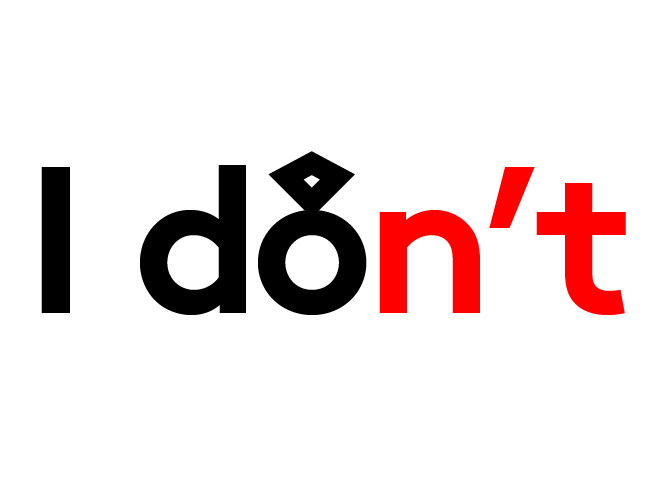
A weeklong series dedicated to skewering the traditions, expectations, and psychodrama that surround wedding season.
It started with the hair. First, many of the women I knew were growing it out. If their hair inched past their shoulders, my developing theory went, a Facebook announcement would soon follow: She had gotten engaged. Was there a more obvious way than long hair to signal your readiness for a wedding updo, followed by a lifetime of legally enshrined gender roles? I started feeling a little relieved when someone would show up with a fresh bob.
I only noticed this because the things that trouble us are also usually the things that interest us. To my horror, starting around the time I turned 27, I could not bat marriage away: It felt contagious, in the conversation — and you couldn’t deny that it really suited some people, like jumpsuits. Even Beyoncé was singing, in dubious duet with Drake, that getting married was all she could think about. It was irrational and useless, but I was starting to tell myself it was possible there were people for whom it worked. Still: Marriage was — it remains — my most embarrassing interest to date.
Just three years before my mind started to change, my older brother had announced his engagement. After an argument about a lifetime of complacency and Netflix (my then-definition of marriage), we stopped talking for several months. He’d been with his girlfriend for nearly a decade, so why now this change? I knew I was being unfair, but, I thought, so was my brother — after all, he was bucking family tradition.
I’d assumed that not valuing marriage was in our blood. Our reluctantly married and long-divorced parents had projected a political distaste for the institution, save in a few specific legal instances. This meant I’d heard about its problematic history before I’d been to any weddings, which might be why I’m invited to so few of them.
None of it made sense, not for my brother, not for my supposedly progressive friends, not for me: If you didn’t need insurance or a green card, why bind debt or take on the regrettable identity of “wife,” a stuffy, outdated-sounding title that seemed to resonate louder than all others? Why get legal sign-off on what is basically just a plan to never break up?
I was a true marriage nonbeliever, not like other people in their 20s, flirting with an alternative path on their way to the inevitable. If you were with someone long enough, I knew, you could count on nosy people to ask about your plans to marry. But I hadn’t believed I would ever ask myself the same question.
Because my marriage fantasies began around the time I finished graduate school, I first attributed them to a life that felt uncertain. I’d put everything I owned into storage and gone to Russia, where I worked an array of part-time jobs remotely. It was dark more hours than it was light, and I spent a lot of lonely time picturing domesticity — but, I told myself, those scenes were just a lazy person’s way of filling up a vague future. When I returned, got a salaried job and a new apartment, I attributed the preoccupation to newfound stability — and scoffed at that too, because it was also irrational and so typical.
I blamed friends’ noxious desires to marry, ring pics, my parents’ divorce, and marriages that actually seemed moving. Mostly, I really didn’t want the assholes who said, “You just haven’t met the right person yet” to be correct — as though love were all it took to shake your lifelong convictions.
But the thing was that I had met someone. Someone with whom the possibilities of fun and partnership felt infinite. I’d lived alone for half my 20s, and now I was curious about who I might be with someone else.
It hadn’t occurred to me that to occupy a marriage-resembling long-term relationship while never actually going there wasn’t taking much of a stance. After cohabiting in my very early 20s, I swore that I would never live with a boyfriend again, and until the week I turned 29, I didn’t. Once we lived together, I noticed some social shifts: We were invited to dinners with other couples, where the pronouns directed at me became plural instead of singular. A piece of paper might be required for some things, but not to take our places in a romantic narrative that was easy for others to follow.
Once or twice, strangers mistook me for an actual wife. It was sort of gross, like the time a driver delivering us to a hotel who intended to say only to my boyfriend, as he slammed our luggage into the trunk, “So you brought the old lady along, huh?”
But secretly, I was excited. There was something warm in the idea that we could be married. There was no rationale for this — how would marriage be substantively different from what we had now? It was infuriating. I wanted the whole idea gone, but it was lodged in my head, and appearing everywhere around me.
There was another frustrating aspect: To get married is a decision two people ultimately have to make. To date, I’d made all my big life choices by myself. But by definition, the choice to get married can’t be made alone. And though heterosexual men so often initiate marriage, the questions around it don’t seem to afflict them in the same pressing way. I didn’t know any men analyzing haircuts. There were no wedding magazines for them. My interest in marriage felt, in this way, too, fundamentally unjust.
People who marry are almost never asked why, but people who don’t plan to are, so I’ve ended up with a lot of opinions about marriage. I don’t see how you can opt into a very old tradition, in large part because it is tradition, and also see fit to make it your own: Giving up the walk-down-the-aisle parental hand-off doesn’t do much to erase marriage’s creepy history. Saying “partner” — a term my mom once called “the triumph of capitalism” — doesn’t do much for gender inequality. For years, any time I ended up in conversation with a woman explaining her conflictedness over marriage, offering amendments and apologies while futzing with a ring, I felt tired. Was someone making her get married?
I was confident I could evade any social pressure around marriage. But I’d underestimated actual desire — or, at least, my own. And like most of the theories I’ve had, marriage has turned out to look different in practice. As people get married, I can see in their marriages the things I admire and, even more to my taste, the things I’d do differently. I’d treat it as a deepening, but not a final destination. Anniversaries would only be worth celebrating at maybe year ten, after you’d really proved something. I’d never use the word “hubby” or write a laudatory Facebook post about him performing a basic life task such as cooking dinner.
The only thing more annoying than the cringe-worthy depictions of marriage I see around me is the desire itself, which feels beyond logic or control. And the aspect of marriage that once seemed most laughable, the legal plan to not break up, even though technically unenforceable, has turned out to hold the most appeal — its very preposterousness making it tempting, like a dare, or a jumpsuit, or food at the state fair. The whole thing is totally irritating, but it’s true: I ended up, at least for now, a long-haired sellout who wants to get married, too.





